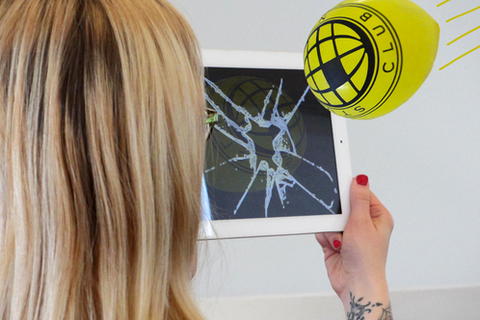I’m attempting to write up every single session I went to at SXSWi. Will be mostly about games, but also how tech can kill, neuroscience, digital anthropology, civic science and more.
[youtube=http://www.youtube.com/watch?v=aIWMSmKwDns]
A video introduction to the Public Laboratory of Open Technology and Science.
Public Lab: Mapping, DIY Activism & Civic Science
http://schedule.sxsw.com/2012/events/event_IAP9516
This session was an introduction to an extremely interesting organisation: The Public Laboratory for Open Technology and Science (PLOTS). In their own words, they are “a community which develops and applies open-source tools to environmental exploration and investigation”. They provide simple tools and DIY solutions that enable people to collect data about their environment. The applications of this are absolutely fascinating and potentially very important.
As the panel explained, much environmental data is effectively owned by agencies and major organisations. Moreover, the standard tools for collecting this sort of information are expensive and proprietary, requiring serious investment in hardware or software. This creates an imbalance, especially in communities where the environment is under stress as a result of the action of big companies, think of the BP oil spill (more on that later). Those communities don’t usually have the means to collect their own data. PLOTS aims to change this.
They call what they do “civic science”: enabling projects which are community developed and community owned. They were keen to distinguish this from “citizen science”, which they defined as crowdsourcing data that then goes back to a big agency or research team, out of the hands of the people that collected it. The tools they develop are low cost and open source and information is shared under a creative commons share-alike license.
To give an example, during the BP Deepwater Horizon oil spill, people along the Gulf Coast wanted their own monitoring tools to see what was really happening to their shores. They clearly mistrusted the official line, and wanted to see for themselves. So PLOTS provided the information and tools to do this, particularly in the form of aerial mapping, and funded the project via Kickstarter. The rig for the aerial mapping technology is deliberately basic, uses balloons, a soda bottle and a camera, and yet can produce data “an order of magnitude better than Google maps”, they claimed. You can see the rig here, and more information about the Gulf Coast project here.
The aerial mapping tools have also been used by protestors to monitor demonstrations. For example this article on The Verge has pictures of balloon rigs being used by Occupy Wall Street protesters. This and other mapping projects can be found on the Grassroots Mapping site. From the PLOTS website:
Maps are often used by those in power to exert influence over territory, or control territorial narratives. “Grassroots mapping” attempts to invert this dynamic by using maps as a mode of communication and as evidence for an alternative, community-owned definition of a territory. To date, our tools have been used to contest official maps or rhetoric by enabling communities to map sites that are not included in official maps. In Lima Peru, members of an informal settlement developed maps of their community as evidence of their habitation, while on the Gulf Coast of the US, locally produced maps of oil are being used to document damage that is underreported by the state.
Mapping can be hugely political, and as they say, this has traditionally been a tool only for those in power to wield. It’s exciting to see the tools being made available to try and redress this imbalance, but the challenges don’t end there. Firstly, it is important, they said, for people carrying out aerial mapping activity to consider how what they are doing might be perceived. After all, people may be unsettled by unmanned flying objects taking pictures of them if they don’t know what it’s for.
More significantly, though, there is the hurdle of getting your data recognised by authorities. Particularly, I imagine, if it is data that contradicts the official information. They have to be careful about the chain of custody for data to make sure that its legitimate and can’t be called into question. Also, they have to go through a legal process for advocacy which they described as “frustrating”.
But it sounds like they are doing good work, and it’s an inspirational idea. I did a bit of digging, but haven’t turned up any similar projects here in the UK. Anyone heard of any?
The whole session was recorded and you can listen to it here. You can also follow PLOTS on twitter: @publiclab.

